Are you looking to navigate the often tricky waters of university language proficiency requirements? If so, a well-crafted letter requesting a waiver can be your best ally. In this article, we'll explore essential tips and a sample template to help you put your best foot forward. So, grab a cup of coffee and let's dive into the details!
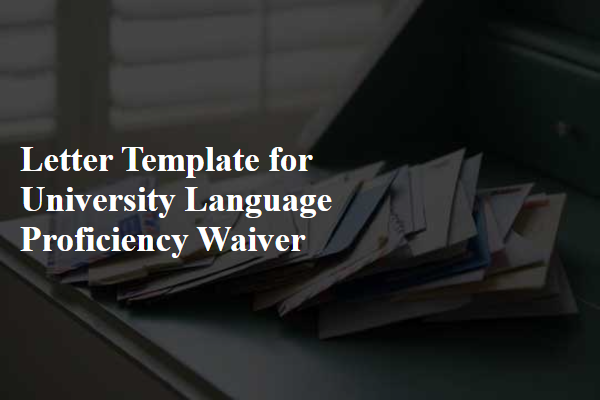
Student Information
A language proficiency waiver request often arises, particularly for students whose primary language aligns with the institution's language requirements. Universities such as Stanford or Harvard may consider waivers for students from countries where English is the official language or where English is the medium of instruction in previous academic endeavors. For instance, students from countries like Canada or Australia, where English is predominantly spoken, can provide their academic transcripts as evidence of their proficiency. Furthermore, institutions frequently require documentation detailing the specific language of instruction, including course syllabi or letters from educational authorities, to process the waiver effectively. Timely submission of the request, often during the application timeline specified by the university, enhances the likelihood of a favorable outcome.
Reason for Waiver Request
Requesting a waiver for language proficiency requirements can be essential for prospective university students who possess unique circumstances or qualifications. Applicants may seek a waiver based on prior education in English-speaking countries, demonstrated proficiency through standardized tests like the TOEFL or IELTS, or considerable experience in professional settings where English was the primary language for communication. Universities often assess these requests individually, taking into consideration the candidate's academic history, immersion in English-speaking environments, and any relevant documentation that validates their competency. Providing a strong rationale backed by evidence can significantly enhance the chances of approval for such waivers.
Supporting Justification
A university language proficiency waiver may be supported by evidence showcasing a candidate's extensive academic or professional experience in an English-speaking environment. Candidates might present their completion of a degree program in English from an accredited institution, such as a Bachelor's or Master's degree, where instruction occurred entirely in English. This can be complemented by letters of recommendation from professors or employers attesting to the candidate's proficiency in English, highlighting relevant experiences such as presentations, research publications, or work-related communication conducted in English. Additionally, standardized test scores, like the TOEFL or IELTS, showing previous high scores may further support the case for waiving the language requirement. Providing proof of residency in an English-speaking country for an extended duration might also be beneficial. Accumulated experiences in both academic and professional settings should be well documented to reinforce the justification for a waiver.
Documentation or Evidence
Universities often require language proficiency proof for non-native English speakers. A language proficiency waiver may be granted based on evidence such as completed coursework in English, standardized test scores (e.g., TOEFL above 100), or previous degrees acquired in English-speaking institutions (e.g., a Bachelor's degree from a university in the United States). Documentation should include transcripts, course syllabi, or official letters from the educational institution, detailing the language of instruction, as well as any relevant test score reports to strengthen the application for a waiver. The admissions office typically evaluates such evidence to determine eligibility for exemption from language tests.
Contact Information
University policies often allow for language proficiency waivers under specific circumstances, such as prior education in English-speaking environments or alternate assessment methods. Applicants from countries with English as an official language may qualify. It is essential to clearly state the request for a waiver along with supporting documentation, such as transcripts from accredited universities, standardized test scores (like TOEFL or IELTS), or a formal letter from the previous educational institution confirming the medium of instruction. Providing complete contact information, including full name, address, phone number, and email, is crucial for follow-up.
Letter Template For University Language Proficiency Waiver Samples
Letter template of request for university language proficiency waiver due to prior education.
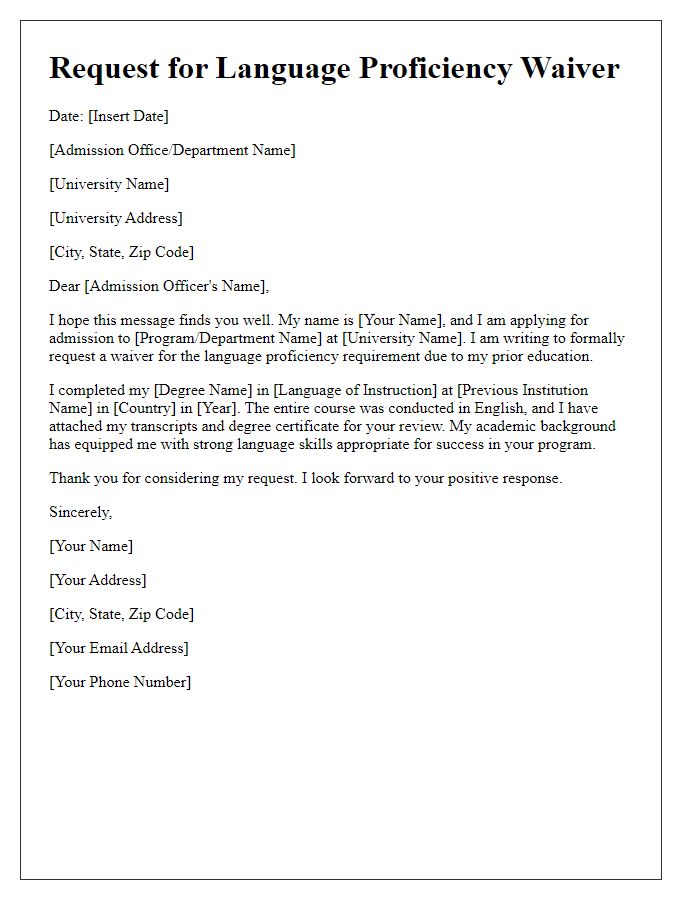
Letter template of appeal for language proficiency waiver based on native language.
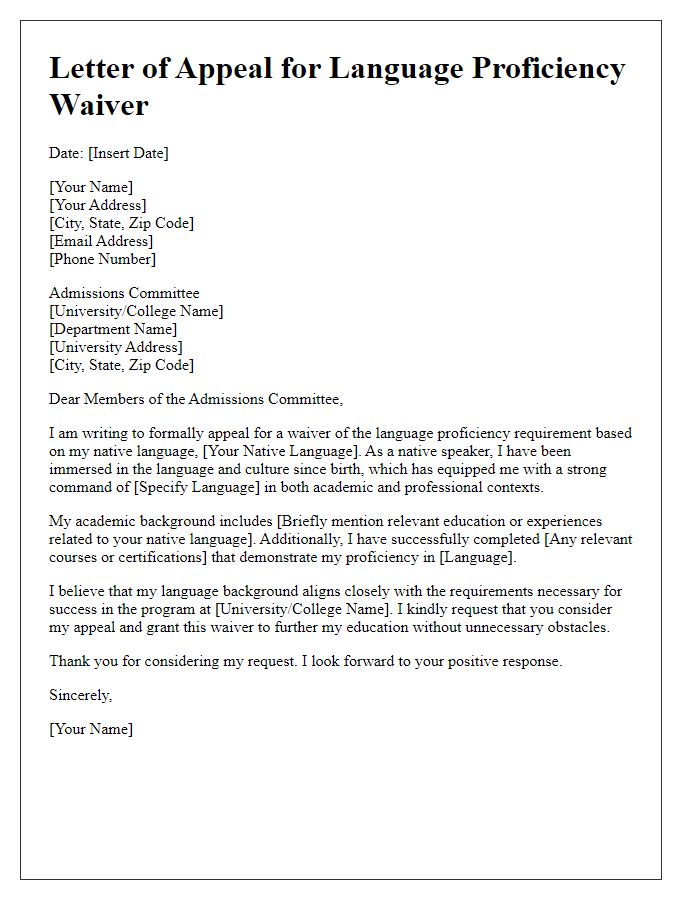
Letter template of application for language proficiency exemption due to work experience.
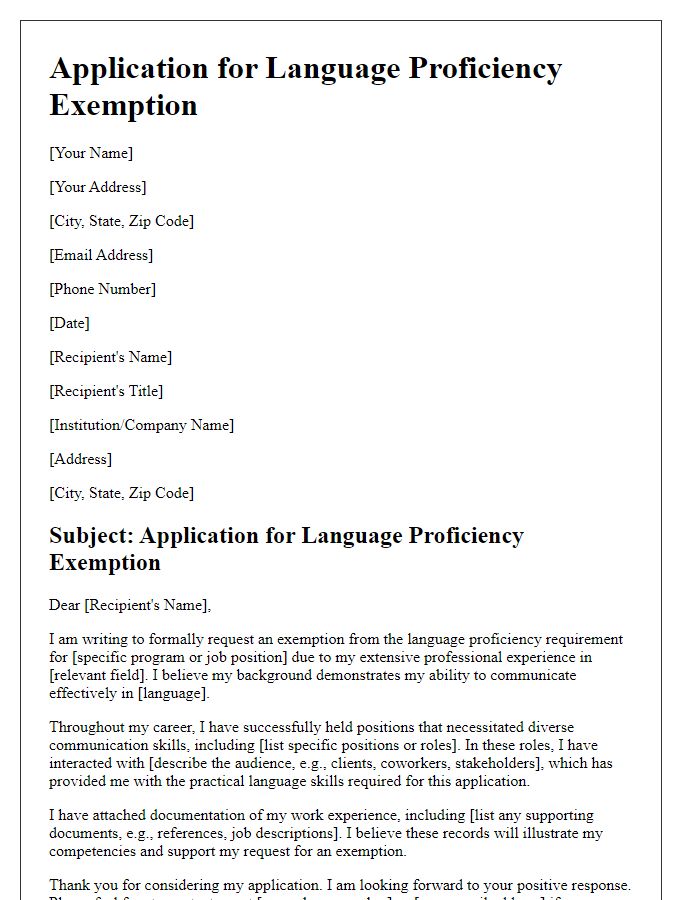
Letter template of petition for language proficiency waiver for international students.
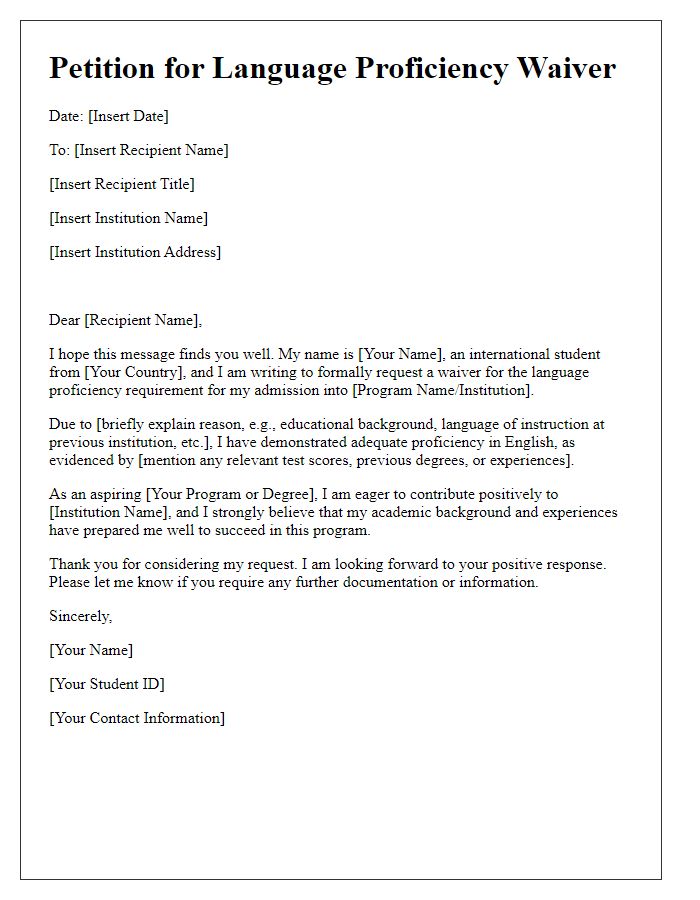
Letter template of justification for university language proficiency waiver request.
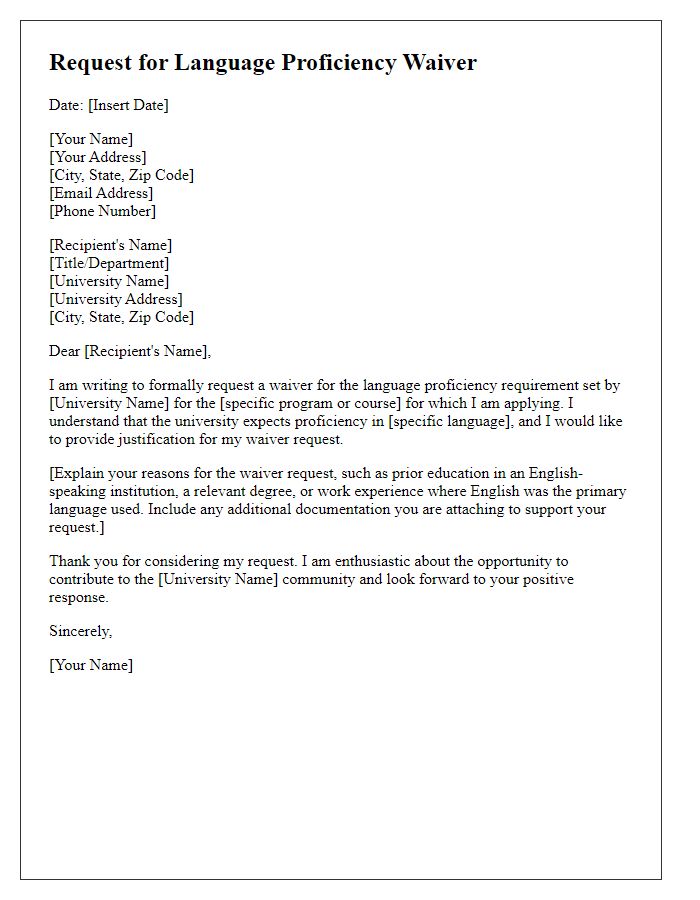
Letter template of inquiry regarding language proficiency waiver policy.
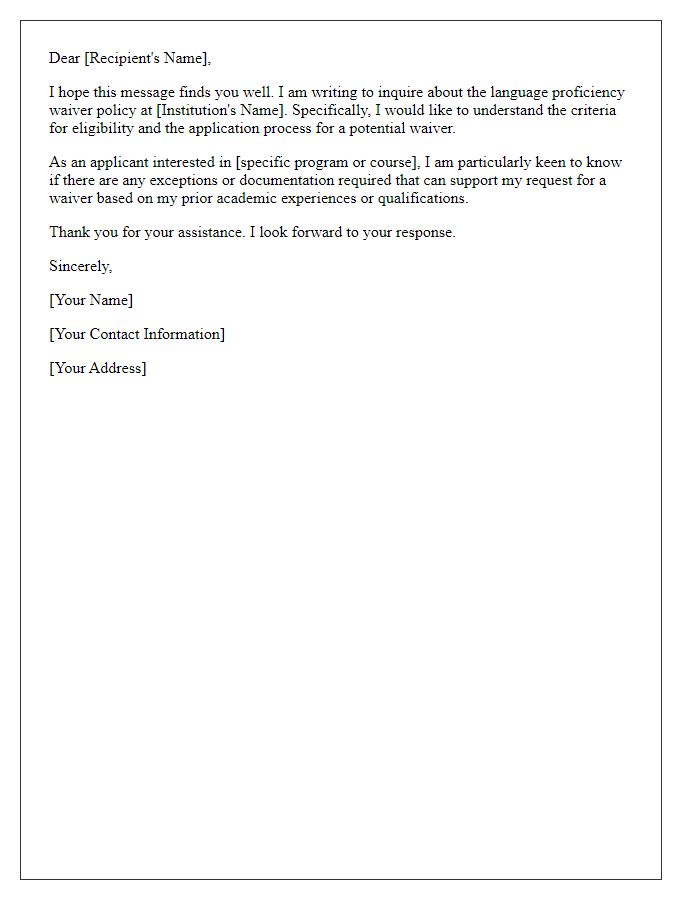
Letter template of recommendation for university language proficiency exemption.
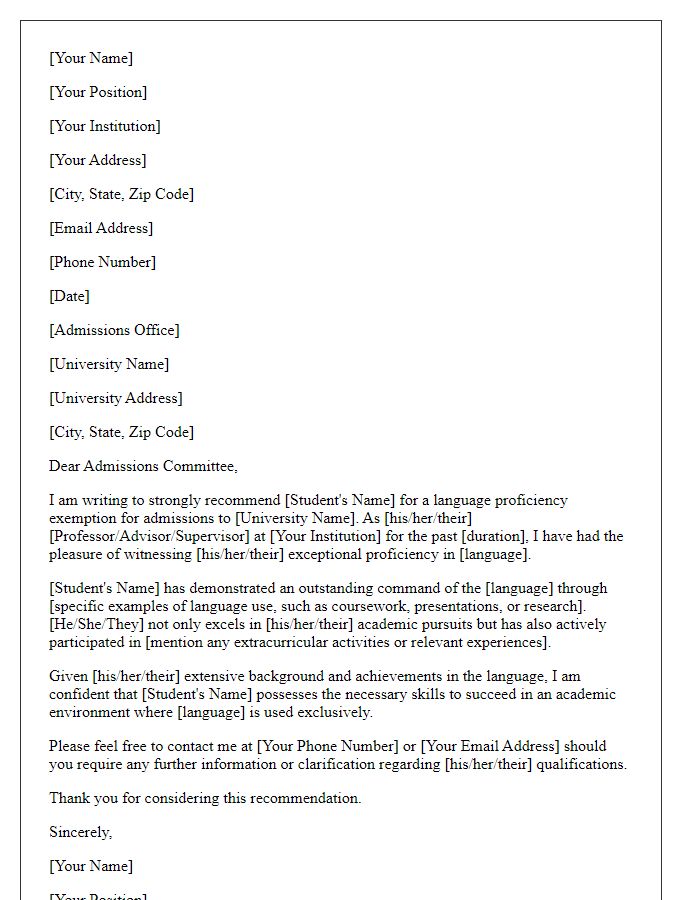
Letter template of support for language proficiency waiver for graduate admissions.
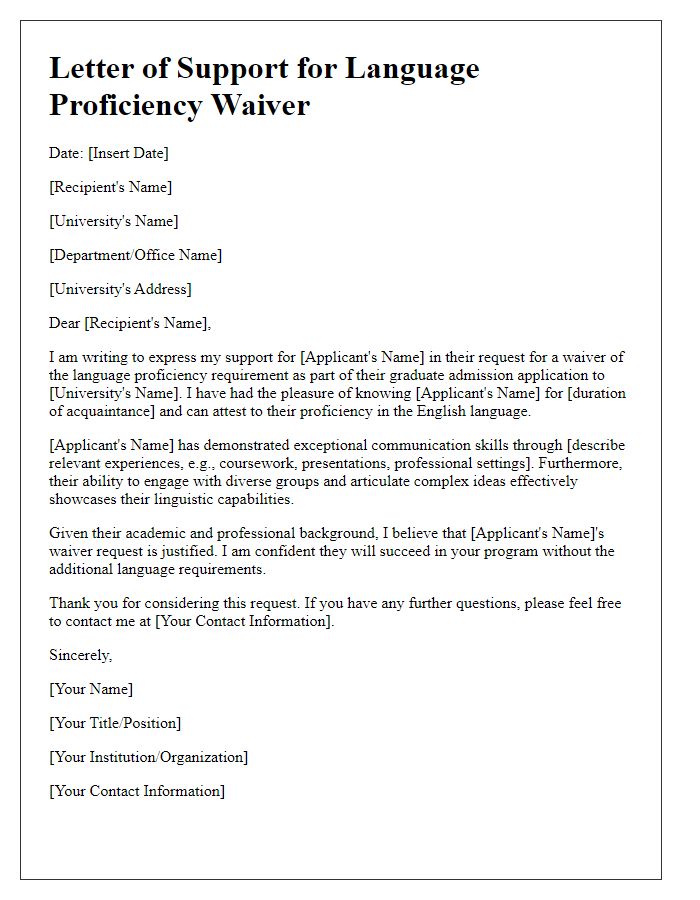
Letter template of explanation for language proficiency requirement waiver.
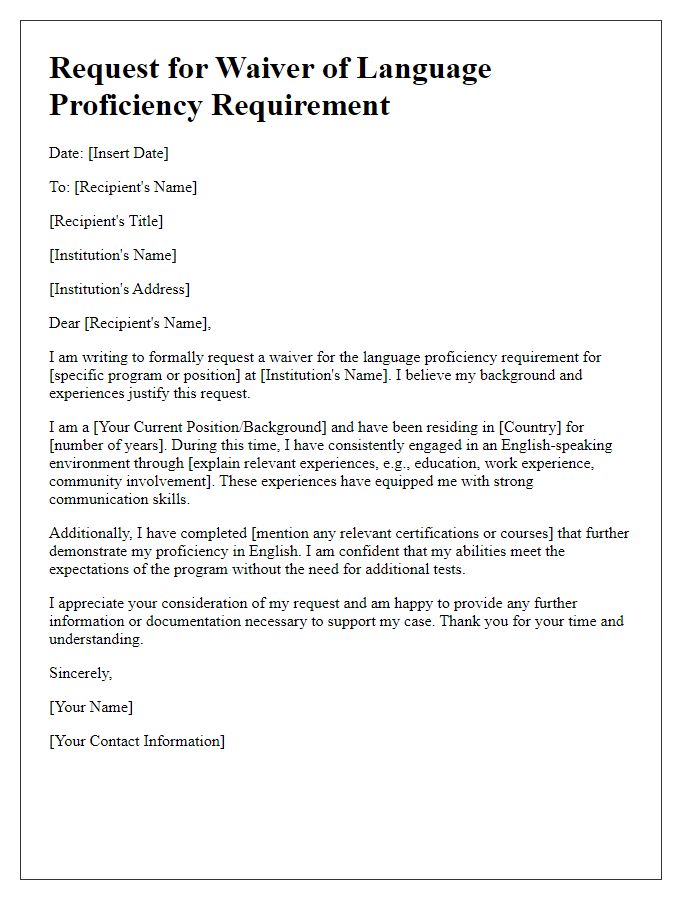

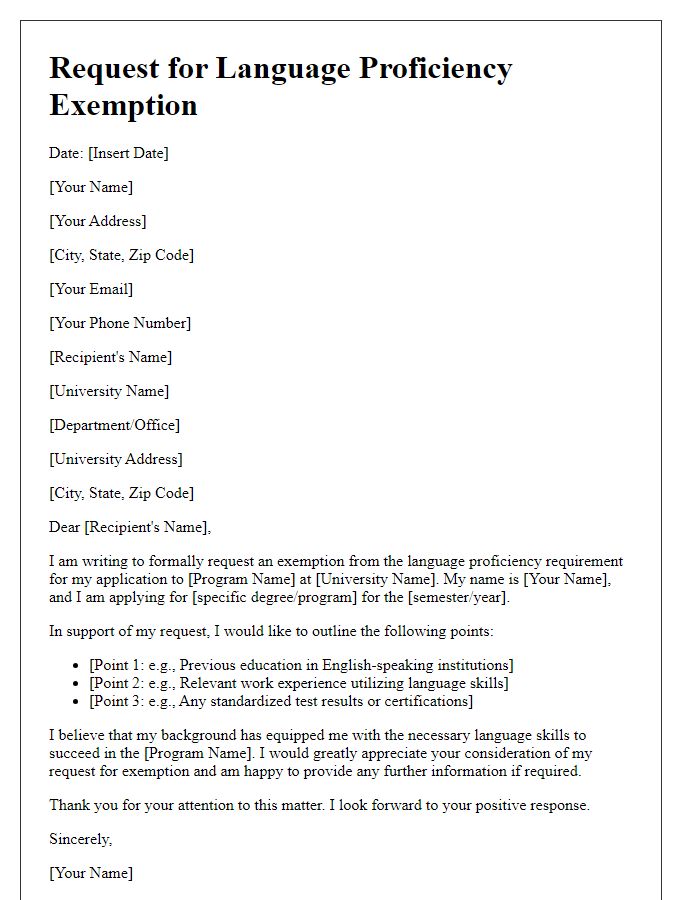


Comments